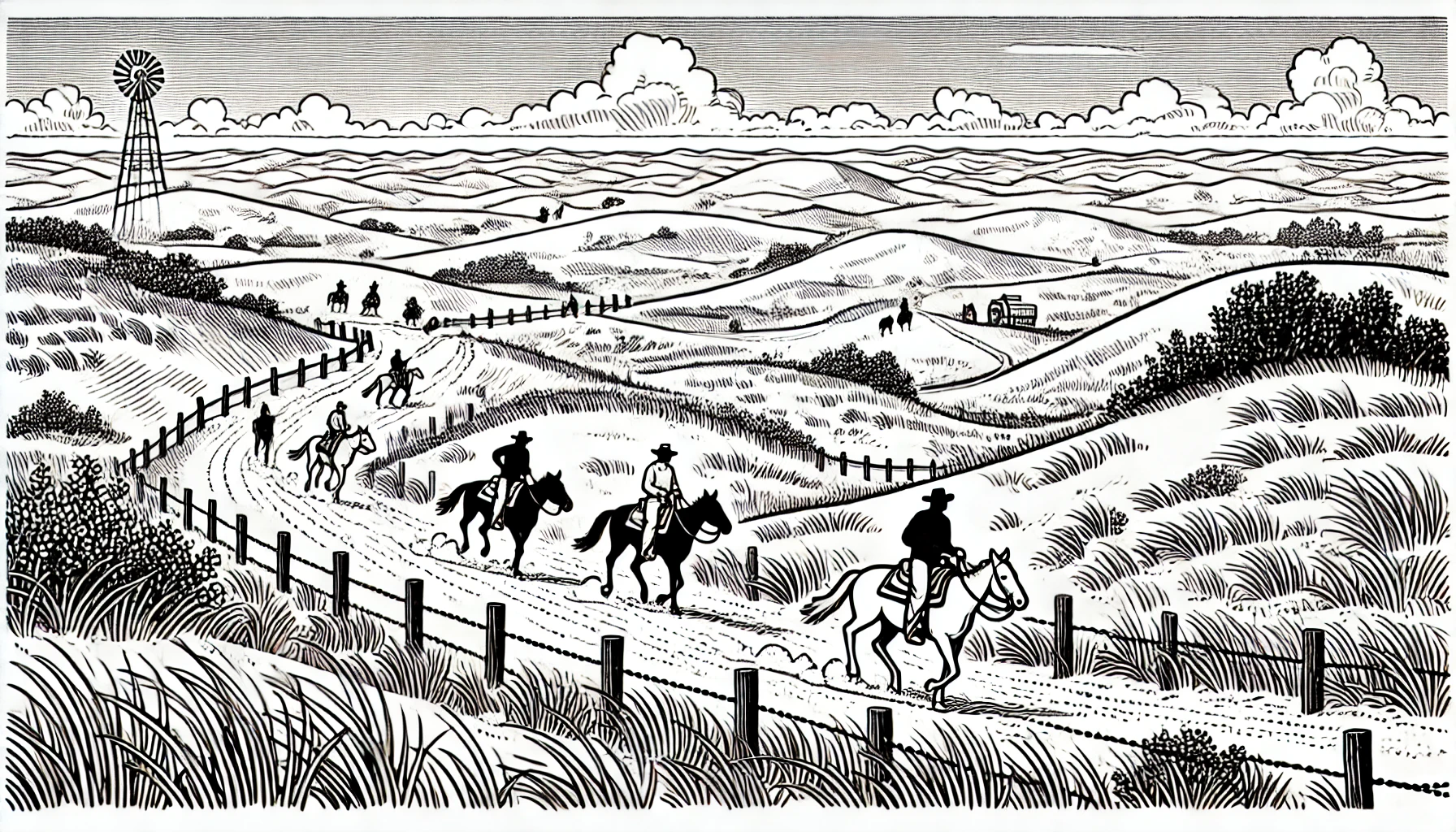Traveling Through Nebraska: Unpacking Voter Suppression

Traveling through Nebraska can be a fascinating experience, with the state's rich history and cultural heritage on full display. However, beneath the surface of this Midwestern state lies a complex and often fraught history of voter suppression. As we delve into this chapter of Nebraska history, it becomes clear that the struggles faced by marginalized communities in the state are far from trivial.
Nebraska's history of voter suppression is deeply intertwined with its legacy of racial tension and xenophobia. In the late 19th and early 20th centuries, the state implemented a series of laws aimed at restricting the voting rights of newly arrived immigrants and African Americans. One notable example is the "Grandfather Clause," a provision that exempted voters from literacy tests and other restrictions if their grandfathers had been eligible to vote before the passage of the 15th Amendment. This clause effectively disenfranchised countless African Americans and immigrants, who were barred from participating in the democratic process.
The city of Omaha, located in eastern Nebraska along the Missouri River, played a significant role in the state's voter suppression efforts. During the 1920s and 1930s, Omaha became a hotbed of racist activity, with the Ku Klux Klan exerting significant influence over local politics. The city's African American community was subjected to violent intimidation tactics, including bombings and arson attacks, in an effort to suppress their voting power. One notable example is the story of Malcolm X's family, who faced repeated harassment and intimidation from the Omaha Ku Klux Klan during the 1920s.
In the aftermath of the Civil Rights Act of 1964 and the Voting Rights Act of 1965, Nebraska began to take steps towards improving voting rights for marginalized communities. However, remnants of the state's voter suppression legacy persisted, often taking on more subtle forms. For example, the city of Lincoln, home to the University of Nebraska-Lincoln, implemented a series of voter ID laws in the 2000s that disproportionately affected students and low-income residents. These laws required voters to present identification at the polls, often making it difficult for those without driver's licenses or state-issued ID cards to participate in elections.
One notable instance of voter suppression in Lincoln occurred during the 2016 presidential election, when the Lancaster County Election Commissioner sent out thousands of incorrect voter registration cards to students at the University of Nebraska-Lincoln. The cards contained incorrect polling locations and other erroneous information, leading to widespread confusion and disenfranchisement among student voters. The incident sparked a heated debate about voter suppression tactics and the need for increased voter protection in the state.
In recent years, Nebraska has made strides towards improving voting access and combating voter suppression. The state has implemented measures such as online voter registration and automatic voter registration for individuals who interact with state agencies. Additionally, organizations such as the ACLU of Nebraska and the Nebraska Appleseed Center for Law in the Public Interest have worked tirelessly to advocate for voting rights and challenge voter suppression laws.
As we travel through Nebraska, it is essential to acknowledge the complex and often fraught history of voter suppression in the state. By examining the specific examples of voter suppression in Omaha and Lincoln, we gain a deeper understanding of the ongoing struggles faced by marginalized communities in Nebraska. By exploring this complex history, we can work towards a more inclusive and equitable democratic process for all.
In the context of Nebraska history, it is clear that voter suppression remains a pressing concern. As we continue to travel through the state, it is essential to acknowledge the resilience and determination of those who have fought tirelessly for voting rights, often in the face of overwhelming adversity.
Nebraska's history of voter suppression is deeply intertwined with its legacy of racial tension and xenophobia. In the late 19th and early 20th centuries, the state implemented a series of laws aimed at restricting the voting rights of newly arrived immigrants and African Americans. One notable example is the "Grandfather Clause," a provision that exempted voters from literacy tests and other restrictions if their grandfathers had been eligible to vote before the passage of the 15th Amendment. This clause effectively disenfranchised countless African Americans and immigrants, who were barred from participating in the democratic process.
The city of Omaha, located in eastern Nebraska along the Missouri River, played a significant role in the state's voter suppression efforts. During the 1920s and 1930s, Omaha became a hotbed of racist activity, with the Ku Klux Klan exerting significant influence over local politics. The city's African American community was subjected to violent intimidation tactics, including bombings and arson attacks, in an effort to suppress their voting power. One notable example is the story of Malcolm X's family, who faced repeated harassment and intimidation from the Omaha Ku Klux Klan during the 1920s.
In the aftermath of the Civil Rights Act of 1964 and the Voting Rights Act of 1965, Nebraska began to take steps towards improving voting rights for marginalized communities. However, remnants of the state's voter suppression legacy persisted, often taking on more subtle forms. For example, the city of Lincoln, home to the University of Nebraska-Lincoln, implemented a series of voter ID laws in the 2000s that disproportionately affected students and low-income residents. These laws required voters to present identification at the polls, often making it difficult for those without driver's licenses or state-issued ID cards to participate in elections.
One notable instance of voter suppression in Lincoln occurred during the 2016 presidential election, when the Lancaster County Election Commissioner sent out thousands of incorrect voter registration cards to students at the University of Nebraska-Lincoln. The cards contained incorrect polling locations and other erroneous information, leading to widespread confusion and disenfranchisement among student voters. The incident sparked a heated debate about voter suppression tactics and the need for increased voter protection in the state.
In recent years, Nebraska has made strides towards improving voting access and combating voter suppression. The state has implemented measures such as online voter registration and automatic voter registration for individuals who interact with state agencies. Additionally, organizations such as the ACLU of Nebraska and the Nebraska Appleseed Center for Law in the Public Interest have worked tirelessly to advocate for voting rights and challenge voter suppression laws.
As we travel through Nebraska, it is essential to acknowledge the complex and often fraught history of voter suppression in the state. By examining the specific examples of voter suppression in Omaha and Lincoln, we gain a deeper understanding of the ongoing struggles faced by marginalized communities in Nebraska. By exploring this complex history, we can work towards a more inclusive and equitable democratic process for all.
In the context of Nebraska history, it is clear that voter suppression remains a pressing concern. As we continue to travel through the state, it is essential to acknowledge the resilience and determination of those who have fought tirelessly for voting rights, often in the face of overwhelming adversity.
